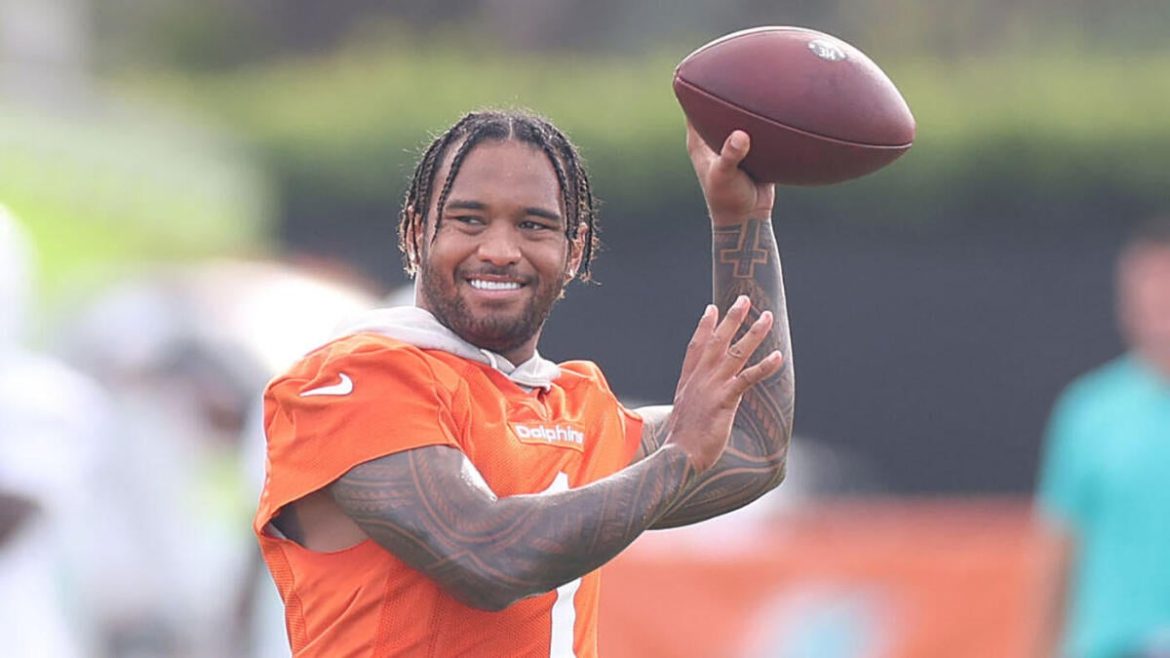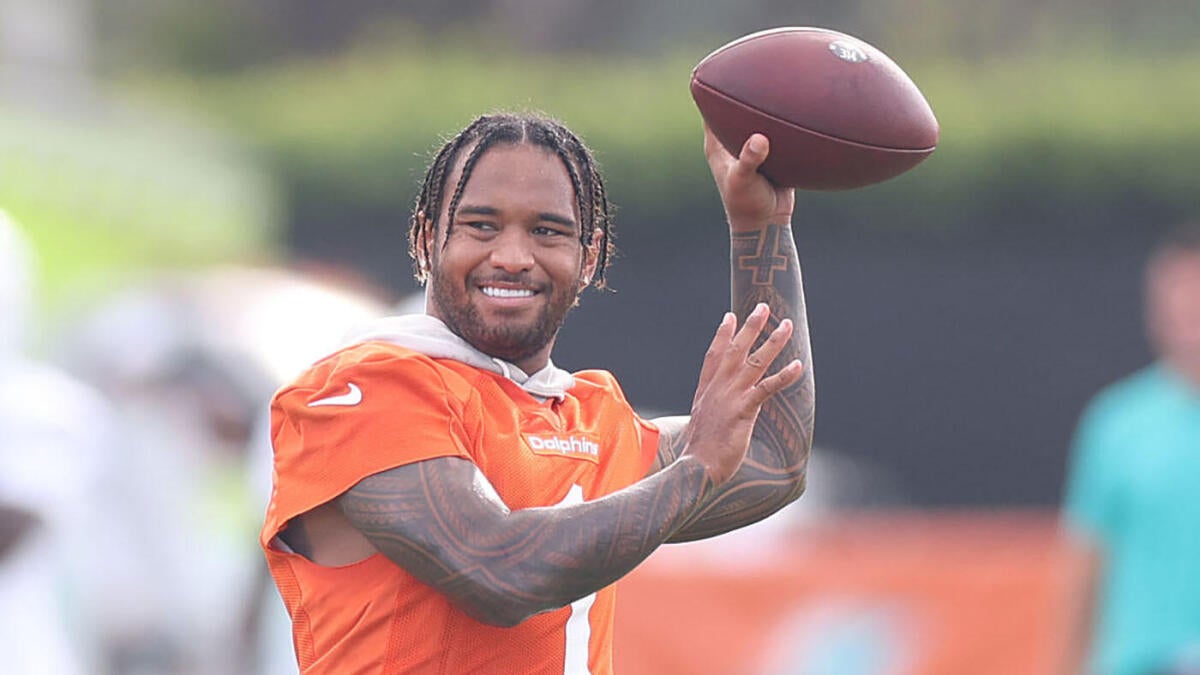Tua Tagovailoa’s Preseason Push: Balancing Ambition and Caution
The Importance of Preseason for Quarterbacks
Preseason games serve as a critical bridge between offseason preparation and regular-season performance. For quarterbacks like Tua Tagovailoa, these games offer invaluable opportunities to refine their skills in a live-game environment. The controlled chaos of preseason action allows quarterbacks to:
- Develop timing and rhythm with their receivers, which is difficult to replicate in practice.
- Test new plays and schemes against opposing defenses, providing real-time feedback on their effectiveness.
- Build chemistry with offensive linemen, running backs, and tight ends, fostering the unspoken communication that develops during live action.
- Adjust to game speed, which often differs from practice intensity, helping quarterbacks transition smoothly into the regular season.
Tagovailoa’s request for more preseason snaps reflects his understanding of these benefits. His statement about wanting to “get things tuned in with the guys” highlights the practical advantages of live-game repetitions, especially with a roster that evolves annually.
The Cautionary Tale of Injury History
However, Tagovailoa’s injury history complicates this straightforward equation. His NFL career has been marked by concussions, raising legitimate concerns about his long-term health and availability. The Dolphins’ coaching staff has responded with increasing caution, reducing his preseason snaps each year.
This cautious approach stems from several factors:
- Concussion protocol: Players with a history of head injuries are at higher risk for subsequent concussions, making every hit potentially more dangerous.
- Team investment: The Dolphins have significant financial and strategic investments in Tagovailoa, making his health a top priority.
- Performance reliability: The team needs Tagovailoa available for the regular season, where his performance directly impacts their success.
General manager Chris Grier’s emphasis on Tagovailoa’s availability underscores this priority. The team’s approach reflects a broader NFL trend of minimizing preseason exposure for franchise quarterbacks, with many teams now limiting their starters’ preseason playing time.
The Risk-Reward Equation
The debate over Tagovailoa’s preseason participation boils down to a risk-reward calculation. On one hand, increased playing time could:
- Enhance performance: More reps could sharpen Tagovailoa’s decision-making and execution.
- Boost confidence: Live-game success in the preseason can translate to regular-season readiness.
- Strengthen team dynamics: Increased interaction with teammates can foster better on-field communication and trust.
On the other hand, the risks are significant:
- Injury potential: Each snap increases the chance of concussion or other injuries that could sideline Tagovailoa.
- Long-term impact: Repeated head trauma has been linked to chronic traumatic encephalopathy (CTE), raising concerns about Tagovailoa’s future health.
- Season disruption: An injury during the preseason could force the Dolphins to start the season with a backup quarterback, potentially derailing their campaign.
Potential Compromise Solutions
Given these competing factors, the Dolphins might consider a balanced approach that addresses both Tagovailoa’s development and his health. Possible strategies include:
- Selective participation: Tagovailoa could play in specific series or games, focusing on particular aspects of the offense that need refinement.
- Controlled exposure: The coaching staff could design plays that minimize contact risk, such as quick passes or plays that keep Tagovailoa in the pocket.
- Gradual increase: Tagovailoa could start with limited snaps in the first preseason game, with increased participation contingent on his performance and health.
- Alternative preparation: The team could emphasize practice intensity and film study as substitutes for live-game reps, particularly for plays that pose higher injury risks.
The Broader Implications for the Dolphins
The decision regarding Tagovailoa’s preseason participation extends beyond individual games. It reflects the Dolphins’ strategic approach to building a competitive team. After missing the playoffs last season, the franchise faces pressure to demonstrate progress. Tagovailoa’s health and performance will be central to their success, making this decision particularly consequential.
The team’s handling of this situation could also set a precedent for how they manage other key players, particularly those with injury histories. A measured approach that prioritizes long-term health while still addressing immediate performance needs could become a model for player management.
Conclusion: A Delicate Balance
Tua Tagovailoa’s desire for more preseason snaps presents the Miami Dolphins with a complex challenge. On one hand, the potential benefits of increased playing time are clear. On the other, the risks to his health and the team’s season are substantial. The organization must navigate this dilemma with care, balancing Tagovailoa’s ambition with the need to protect their franchise quarterback.
Ultimately, the decision should prioritize Tagovailoa’s long-term health and availability. While preseason games offer valuable experience, they are not indispensable. The Dolphins have the tools and talent to prepare Tagovailoa effectively through practice and strategic planning. By taking a cautious approach, the team can ensure that Tagovailoa is ready to lead them when it matters most – during the regular season and beyond.
The 2025 season for the Miami Dolphins will be defined by their ability to strike this delicate balance. Tagovailoa’s health and performance will be at the heart of their success, making this preseason decision a critical step in their journey. The path forward requires wisdom, foresight, and a commitment to both excellence and safety.





